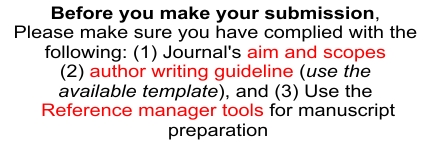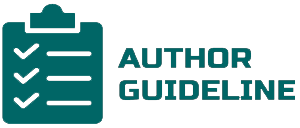PERBANDINGAN PENGARUH PROBLEM-BASED LEARNING DAN SIMULATION-BASED EDUCATION TERHADAP KEMAMPUAN PSIKOMOTOR BASIC LIFE SUPPORT MAHASISWA KEPERAWATAN
Abstract
Background: Initial treatment efforts in patients with cardiac arrest are Basic Life Support (BLS). PBL is a method used to cultivate clinical reasoning in nurse education programs. Problem Based Learning (PBL) is able to improve the skills and learning outcomes of students compared to conventional methods. SBE is the environment that suitable to practice student skills, Simulation Based Education (SBE) also used to improve students' critical thinking, problem solving and teach psychomotor skills. Comparative evaluation of the useof Problem Based Learning (PBL) and Simulation Based Education (SBE) on psychomotor abilities is a consideration for the use of both methods to improve psychomotor abilities. Purpose: This study aims to compare the effect of PBL and SBE on the psychomotor abilities of BLS nursing students. Methods: This research is an experimental study with a design quasi experiment with comparison group. The total respondents were selected with each respondent in each group using the technique simple random sampling. Psychomotor ability data was measured by the BLS psychomotor ability observation sheet which was adopted from guideline AHA. Descriptive statistics, test wilxocon and testman whitney used as analysis. Results: The median value before being given PBL was 4 and the psychomotor ability after giving PBL was 11. The median value before being given SBE was 3 and psychomotor ability after giving SBE was 14. There was an effect of giving PBL (p= 0.001) and SBE (p= 0.001) on the psychomotor ability of BLS. There is a significant difference between PBL and SBE on the psychomotor abilities of BLS with the PBL and SBE methods with a score of (p=0.018). Conclusion: PBL and SBE are able to improve the psychomotor abilities of BLS. Although both learning methods can improve BLS psychomotor abilities, the SBE learning method shows better performance than the PBL method.References
Distlehorst LH, Dawson E, Robbs RS, et al:Problem-based learning outcomes: The glass half-full. Acad Med 2005; 80:294–299.
Donlinger, M. J. & McLeod, J. K. (2015). Solving real world problems with
alternate reality gaming: student experiences in the globalvillage playground capstone course design. Interdiciplinary Journal of ProblemBased Learning, Vol. 9 (2). No. 1541-5014.
Merisier, S., Larue, C., & Boyer, L.(2018). How does questioning influence nursing students' clinical reasoning in problem-based learning?A scoping review. Nurse education today, 65, 108-115.
Muhammad Nurtanto. (2015). Implementasi Problem-Based Learning untuk Meningkatkan Hasil Belajar. https://journal.uny.ac.id./index.php/jpv/article/download/6489/5587
Muhsin, A. 2017. Hubungan Tingkat Usia Dengan Disiplin Belajar Mahasiswa
Madrasah Semester VIII di Universitas Pesantren Tinggi Darul Ulum.
Niven, N. 2012. Psikologi Kesehatan Pengantar untuk Perawat dan Profesional Kesehatan. Jakarta: Rineka Cipta.
Nori, JM., Saghafinia, M., Motamedi,MH., Hosseini, MK. (2012). CPR
training for Nurses: How often is it necessary? Iran Red Crescent
Medical Journal. 14(2): 104 –107
Novita Indriyani Safitri. (2020). Pengaruh Pelatihan Bantuan Hidup
Dasar Metode Simulasi Terhadap Keterampilan Siswa Di SMK Asta
Mitra Purwodadi. Eprint Ukh. https://scholar.google.com/scholar? q=related:-apM65iq6boJ:scholar.google.com/&scioq=&hl=id&as_sdt=0,5
Nugroho, N. . ., Azalea, S., Widyaningsih, Y. A., Rahmapuspita, Damanik, J., Suprapto, A. P., … Jamaluddin, A. (2018). Efektivitas Bantuan Hidup Dasar Untuk Teaga Kesehatan Indonesia. ARKAVI [Arsip Kardiovaskular Indonesia), 3(1), 200–204. https://doi.org/10.22236/arkavi.v3i13689 .
Nursalam. (2017). Konsep dan Penerapan Metodologi Penelitian Ilmu Keperawatan. Salemba Medika.
Nuzhat, A., Salem, R.O., Al Shehri, F.N. & Al Hamdan, N. 2014. Role and challenges of simulation in undergraduate curriculum. Medical Teacher. 36(1):S69-73.
Oktaviani, C., Nurmaliah, C., dan Mahidin, M. 2017. Implementasi Model Problem Based Learning Terhadap Kreativitas Peserta Didik Pada Materi Laju Reaksi Di SMAN 4 Banda Aceh. Jurnal Pendidikan Sains Indonesia, 5(1), pp.12-19. Niven, N. 2012. Psikologi Kesehatan : Pengantar untuk perawat dan tenaga kesehatan profesional lain. Jakarta: EGC.
Polit, D. F., & Beck, C. T. (2018). Essentials of nursing research?: appraising evidence for nursing practice (Ninth Edit). Wolters Kluwer Health.
Rogers PL: Simulation in medical students’ critical thinking. Crit Care Med 2004; 32 (2 Suppl):S70–S71.
Rusnayati, H., & Prima, E. C. 2011. Penerapan Model Pembelajaran Problem Based Learning dengan Pendekatan Inkuiri untuk Meningkatkan Keterampilan Proses Sains dan Penguasaan Konsep Elastisitas pada Siswa
SMA. Yogyakarta: Fakultas MIPA, Universitas Negeri Yogyakarta. F: 331-338
Simanjuntak, M.P. 2013. Pengembangan Model Pembelajaran Fisika Berbasis
Pemecahan Masalah untuk Meningkatkan Pengetahuan dan Keterampilan Metakognisi Mahasiswa. Jurnal INPAFI, 1(1), pp.53-60.
Sugiyono. (2013). METODE PENELITIAN KUANTITATIF, KUALITATIF, DAN R&D (19th ed., Vol. 19). Penerbit Alfabeta.
Suhartanti, I., Ariyanti, F. W., & Prastya, A. (2017). Upaya Peningkatan Penguatan Chain Of Survival Korban Henti Jantung Di Luar Rumah Sakit Melalui Pelatihan Bantuan Hidup Dasar Kepada Kader Kesehatan. PUBLIKASI HASIL PENELITIAN(1).
Supardi. (2019). Pengaruh Pendidikan Kesehatan Tentang BHD Dengan Media
Audio Visual Dan Simulasi Terhadap Tingkat Keterampilan Siswa SMK
Negri II Wonosari. Skripsi Surakarta : Prodi Sarjana Keperawatan STIKes
Kusuma Husada Surakarta.
Syahputra N. Hubungan konsep diri dengan prestasi akademik mahasiswa S1
keperawatan semester III kelas ekstensi PSIK FK USU. Jurnal. [serial online]. 2009. [diakses pada 28 Juni 2015]. dari. http://repository.usu.ac.id/handle/123456789/33255
World Health Organisation. (2018). Fact Sheet: The top 10 causes of death. Retrieved from http://www.who.int/news-room/fact-sheets/detail/the-top-10-causes-of-death
Yunanto, R.A, Wihastuti, T.A, & Rachmawati, S.D. (2017). Perbandingan pelatihan RJP dengan mobile application dan simulasi terhadap pengetahuan dan keterampilan melakukan RJP. NurseLine Journal, 2(2), 183-193.











